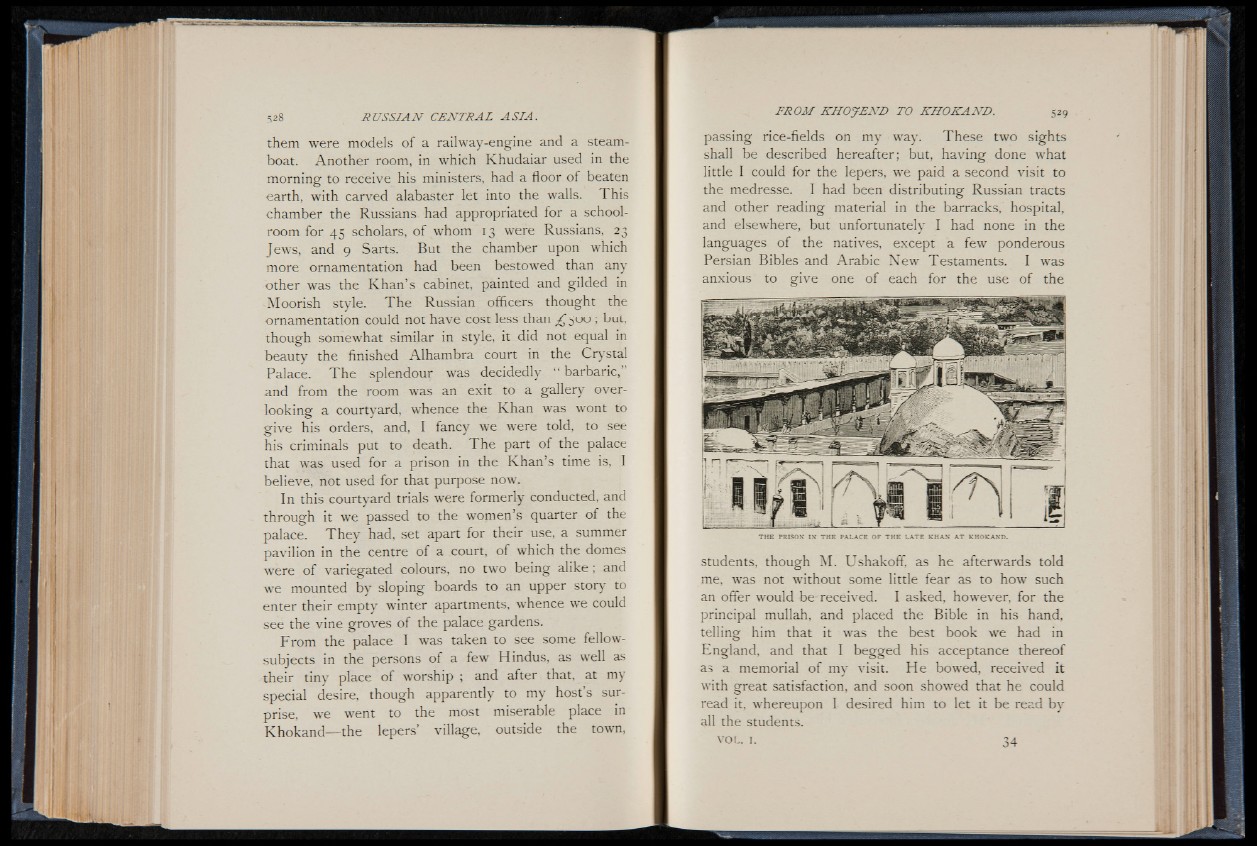
them were models of a railway-engine and a steamboat.
Another room, in which Khudaiar used in the
morning to receive his ministers, had a floor of beaten
earth, with carved alabaster let into the walls. This
chamber the Russians had appropriated for a schoolroom
for 45 scholars, of whom 13 were Russians, 23
Jews, and 9 Sarts. But the chamber upon which
more ornamentation had been bestowed than any
other was the Khan’ s cabinet, painted and gilded in
Moorish style. The Russian officers thought the
ornamentation could not have cost less than ^500; but,
though somewhat similar in style, it did not equal in
beauty the finished Alhambra court in the Crystal
Palace. The splendour was decidedly “ barbaric,”
and from the room was an exit to a gallery overlooking
a courtyard, whence the Khan was wont to
give his orders, and, I fancy O J_we were told, to see
his criminals put to death. The part of the palace
that was used for a prison in the Khan’s time is, I
believe, not used for that purpose now.
In this courtyard trials were formerly conducted, and
through it we passed to the women’s quarter of the
palace. They had, set apart for their use, a summer
pavilion in the centre of a court, of which the domes
were of variegated colours, no two being a lik e ; and
we mounted by sloping boards to an upper story to
enter their empty winter apartments, whence we could
see the vine groves of the palace gardens.
From the palace I was taken to see some fellow-
subjects in the persons of a few Hindus, as well as
their tiny place of worship ; and after that, at my
special desire, though apparently to my host’s surprise,
we went to the most miserable place in
Khokand— the lepers’ village, outside the town,
passing rice-fields on my way. These two sights
shall be described hereafter; but, having done what
little I could for the lepers, we paid a second visit to
the medresse. I had been distributing Russian tracts
and other reading material in the barracks, hospital,
and elsewhere, but unfortunately I had none in the
languages of the natives, except a few ponderous
Persian Bibles and Arabic New Testaments. I was
anxious to give one of each for the use o f the
THE PRISON IN THE PALACE OF THE LATE KHAN A T KHOKAND.
students, though M. Ushakoff, as he afterwards told
me, was not without some little fear as to how such
an offer would be received. I asked, however, for the
principal mullah, and placed the Bible in his hand,
telling him that it was the best book we had in
England, and that I begged his acceptance thereof
as a memorial of my visit. He bowed, received it
with great satisfaction, and soon showed that he could
read it, whereupon I desired him to let it be read by
all the students.
v o l . 1. 34